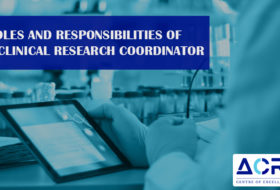India has a little more than 15% of the world’s population, which carries 20% of the global disease burden. Clinical trials have been seen to be executed in India since the past ten years, with the increasing number of trials making the country one of the foremost global destinations for such trials. But, there were ups and downs in this graph. In 2010, more than 500 clinical trials were done in India; although later, this number dropped to less than 200 trials per year due to multiple numbers of uncertainties and unfavourable regulations. However, in 2013, new regulations were introduced, leading to major changes. Ever since, more and more efforts have been made into making the regulations more rationale and balanced, due to which a slow but steady upsurge in the number of trials is being seen.
The Central Drugs Standard Control Organization has also reduced the timeline for approval of clinical trials research. While earlier it used to take 6 months for a proposed clinical trials research to get approved, the timeline has now been considerably reduced. This is because while it used to take so long for approval, similar trials were already conducted in a reduced time period in another country, resulting in India losing out significantly. But, with defined timelines now, new trials can be introduced and gain approval much faster, leading to faster introduction of the medications and drugs to the Indian patients for successful recovery.
Today, in spite of carrying 20% of the global disease burden, including infectious diseases, lifestyle diseases, and non-communicable diseases, India has large unmet medical needs for its patients. New drugs need to be developed; and clinical research is the only way to introduce safe and effective medications into the market. Every drug that is consumed is passed through rigorous control of clinical trials. Clinical research is thus, a very essential part of drug development, which takes around 10-12 years to develop a new drug!
The Central Drugs Standard Control Organization has reformed the regulations recently by incorporating online submission of clinical trials, reduced timeline for the approval of clinical trials, trials results to be updated in the online registry, and much more, which has led to transparency in the system. One other very important development seen is the scaling down of three levels of approval to only one. While earlier, there needed to be an approval done by three committees, which involved lots of time utilization, now the approval needs to be done only by a Subject Expert Committee. Only in case of a disagreement to the committee’s decision, is the application presented to the technical and apex committees.
Similar to this, lots of other changes have been done in the last few years in the field of Indian clinical research. And, looking at this, it seems to be that India is definitely going to see a surge of clinical trials in the year 2018-19. With the vast success that the country is receiving in this field, if you want to put in your efforts into the same in the future, you must get yourself enrolled with a clinical research institute for appropriate training. Avigna Clinical Research Institute is one such establishment that offers the best kind of training and clinical research diploma courses in Bangalore. And, what is even better that there are online and virtual learning courses that can help you learn from the comfort of your home, without disturbing your current lifestyle, schedule, and responsibilities!










